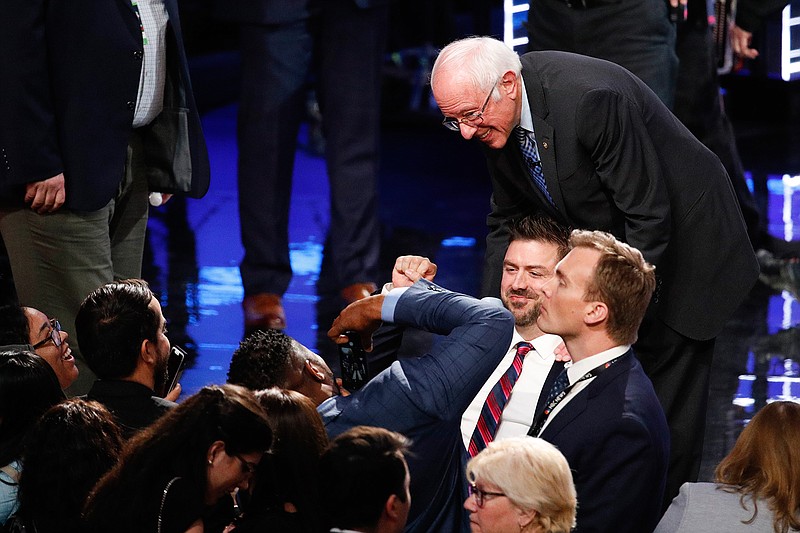WASHINGTON - Many Democratic presidential candidates launched their campaigns last year with bold pledges to reject help from super PACs and dark money groups. But as the realities of a tough primary fight sink in, those promises are fading away.
Elizabeth Warren, one of the fiercest critics of money in politics, was the latest White House hopeful this week to accept help from a big money organization that can raise and spend unlimited amounts on behalf of political candidates. Former Vice President Joe Biden, Minnesota Sen. Amy Klobuchar and Bernie Sanders have done much the same.
The Democratic battle to take on President Donald Trump is entering a critical new phase as more than a dozen states vote within the next couple of weeks with about one third of the delegates needed to win the nomination at stake. Campaign finance disclosures made to the Federal Election Commission on Thursday offered the clearest look yet at who will have the resources to forge on deep into the calendar and who will be forced to soon reckon with the sustainability of their candidacy.
The disclosures include campaign spending and fundraising details for the month of January and laid bare the stark financial choices ahead for those other than former New York Mayor Michael Bloomberg and Sanders.
Bloomberg, a billionaire, has plunged over $400 million into his campaign, while Sanders is propelled by an army of contributors whose renewable stream of small online contributions helped him amass $25 million in January alone.
"Our campaign has built a nationwide organization that is engaging voters daily," said Bloomberg campaign manager Kevin Sheekey. "With over 2,400 staff across 43 states today, Mike is the only candidate with the record and resources to build the national infrastructure Democrats need to beat Donald Trump."
In contrast, Warren raised $10.4 million, held just $2.2 million in reserve at the month's end and borrowed $400,000 on a $3 million line of credit. Her campaign said that since then, during the month of February, she has raised $17 million, a good chunk of which came after a spirited debate performance Wednesday night.
Former Vice President Joe Biden raised $8.8 million in January and had $7.1 million in the bank. And Minnesota Sen. Amy Klobuchar had $2.8 million on hand, though she has raised more than $12 million since a breakout debate performance before the New Hampshire primary.
Even Pete Buttigieg, the former mayor of South Bend, Indiana, whose improbable rise to prominence was fueled in part by his massive fundraising success earlier in the contest reported taking in a lackluster $6 million in January. He also had just $6.6 million cash on hand after burning through $14.1 million that month. His campaign says he has since taken in another $11 million, but has not said how much of that he has spent.
That gives Sanders and Bloomberg an overwhelming advantage heading into Super Tuesday on March 3, when more than a dozen states will hold contests.
Buttigieg's campaign highlighted what could be in store in an email to supporters that said he needed to quickly raise $13 million in order to remain competitive.
"We've had some of our highest fundraising days this month, but - frankly - our numbers should have been better," the campaign wrote. "But here's the reality: With Michael Bloomberg in the race, and with nine dark money groups supporting Bernie Sanders, the goalposts have moved."
Party leaders have long worried that Sanders, a democratic socialist, would lose to Trump because of his embrace of left wing politics. Now, after a neck-and-neck showing against Buttigieg in Iowa, followed by a win in New Hampshire, he's the one best poised to capture nomination.
Bloomberg, with his limitless resources, has emerged as a centrist candidate who has the money to compete with Sanders. But after a widely-panned debate performance on Wednesday where he was eviscerated by Warren, some are doubting that possibility, too.

